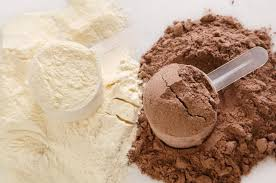Diving Deep into Quality and Compliance of Supplement Manufacturers
Introduction
Introduction to Dietary Supplement Manufacturing
The supplement industry has experienced significant growth in recent years, driven by increasing consumer awareness of health and wellness. With a rising demand for vitamins, minerals, protein powders, and herbal supplements, manufacturers are under pressure to deliver high-quality products that meet stringent safety standards.
Being Australian owned and operated ensures compliance with local regulatory standards and fosters trust among consumers. This commitment to serving both Australian and international organizations highlights the high standards maintained due to Australian ownership.
The importance of quality assurance and compliance in supplement production cannot be overstated, as these elements ensure customers that products are safe, effective, and reliable. Adhering to regulatory requirements and maintaining rigorous quality control measures help manufacturers build consumer trust and protect their brand reputation in a competitive market.
The Importance of Quality Assurance

Defining Quality Assurance in Supplement Manufacturing
Quality assurance in supplement manufacturing encompasses all processes and measures that ensure the final product meets specified standards for safety, efficacy, and consistency. It involves a systematic approach to managing and improving product quality throughout the production cycle. Effective quality assurance not only complies with regulatory requirements but also fosters consumer trust and brand integrity, ensuring that products are safe for consumption and deliver the promised health benefits.
Key Components of Quality Assurance

Quality assurance in supplement manufacturing consists of several critical components:
- Raw Material Selection: Ensuring the use of high-quality, pure, and verified raw materials.
- Manufacturing Processes: Implementing standardized, controlled, and validated manufacturing procedures.
- Final Product Testing: Conducting rigorous testing to verify that the final products meet all quality and safety standards before reaching the market.
The Importance of Quality Assurance

The Role of Quality Control in Ensuring Safety and Efficacy
Quality control is pivotal in supplement manufacturing, ensuring products are safe and effective for consumers. It involves systematic testing and validation at every production stage, from the purchase of raw materials to finished goods. By rigorously adhering to quality control protocols, manufacturers can identify and rectify potential issues, guaranteeing that each supplement batch meets predefined standards. This process not only protects consumers but also enhances the brand’s reputation and trustworthiness.
Preventing Contamination and Adulteration
Maintaining clean and controlled environments is essential in preventing contamination and adulteration in supplement manufacturing. This involves stringent hygiene practices, regular equipment sanitization, and proper handling procedures. Case studies have shown severe consequences when contamination occurs, such as product recalls and legal repercussions. Implementing robust preventive measures ensures product purity and safety, safeguarding consumer health and brand integrity.
Benefits of Rigorous Quality Assurance Practices
Rigorous quality assurance practices provide numerous benefits to customers, including enhanced product safety, efficacy, and reliability. By implementing comprehensive quality assurance measures, manufacturers can ensure that their dietary supplements meet the highest standards. This not only helps in complying with regulatory requirements but also in building a strong reputation for quality and trustworthiness. Consistently high-quality products lead to greater customer satisfaction and long-term business success.
Enhancing Customer Trust and Brand Reputation
Building consumer confidence through transparency is essential for enhancing customer trust and brand reputation. By openly sharing quality assurance practices and product testing results, manufacturers can demonstrate their commitment to safety and quality. This transparency fosters long-term brand loyalty, as consumers are more likely to trust and continue purchasing from brands and services that prioritize their health and well-being.
Navigating the Maze of Compliance

Understanding Regulatory Requirements
Compliance in supplement manufacturing requires a thorough understanding of various regulatory requirements. Key regulatory bodies such as the FDA in the United States, TGA in Australia, and EFSA in Europe set strict guidelines to ensure product safety and quality. Adhering to Good Manufacturing Practices (GMP) is crucial, as these standards cover all aspects of production, from raw material sourcing to final product testing, ensuring consistent and high-quality output.
Key Regulatory Bodies and Standards
Regulatory bodies like the FDA (US), TGA (Australia), and EFSA (Europe) play crucial roles in supplement manufacturing. They enforce standards to ensure product safety and efficacy. Good Manufacturing Practices (GMP) are essential guidelines that manufacturers must follow, covering all production stages to maintain high-quality standards of manufacture and compliance with regulations.
Compliance Challenges in Supplement Manufacturing
Manufacturers face numerous compliance challenges, including keeping up with evolving regulations and ensuring all processes meet stringent standards. Failure to comply can lead to severe penalties, product recalls, and damage to a company or brand reputation. Staying ahead requires proactive measures, continuous education, and a commitment to maintaining the highest levels of quality and safety throughout the production process.
Addressing common questions related to compliance is crucial for manufacturers. These often include inquiries about what services and packaging options are provided by the company to ensure regulatory adherence and product safety.
Keeping Up with Changing Regulations
Regulations in supplement manufacturing continuously evolve, impacting production processes. Staying informed about these changes is vital to ensure compliance. Strategies such as subscribing to industry newsletters, participating in regulatory forums, developing, and consulting with compliance experts can help manufacturers manage to stay updated and compliant with the latest standards. The most common questions manufacturers receive about regulatory changes often revolve around how these changes impact production processes and what steps need to be taken to remain compliant.
Implementing Effective Compliance Strategies
Implementing effective compliance strategies involves integrating comprehensive protocols and procedures throughout the manufacturing process. This includes regular training for staff, continuous monitoring and auditing of production processes, and maintaining meticulous records. By prioritizing compliance, manufacturers can mitigate risks, ensure product safety, and maintain consumer trust.
Training and Education for Staff
Ongoing training programs are essential for maintaining compliance in supplement manufacturing. These programs ensure that staff are aware of the latest regulations unique requirements, and best practices. Effective training modules may include hands-on workshops events, e-learning courses, and regular compliance updates to keep the workforce informed and skilled.
Documentation and Record-Keeping
Accurate and detailed documentation is a cornerstone of compliance in supplement packaging, manufacturing and packaging. Maintaining thorough records ensures traceability, facilitates audits, and helps in identifying and resolving issues promptly. Implementing robust documentation practices supports regulatory compliance and enhances overall quality control.
Maintaining Accurate and Detailed Records
Traceability is crucial in supplement manufacturing. Maintaining accurate and detailed records allows for quick identification of issues and ensures compliance with regulatory standards. Best practices for documentation include using digital systems for record-keeping, regular audits, and ensuring all data is up-to-date and easily accessible.
Quality Assurance and Compliance in Practice

Case Studies of Successful Supplement Companies
Examining case studies of successful supplement companies provides valuable insights into effective quality assurance and compliance practices. These companies demonstrate how rigorous adherence to standards can lead to superior product and service quality and consumer trust. Learning from their experiences helps other manufacturers implement best practices and achieve similar success.
Lessons Learned from Industry Leaders
Industry leaders in supplement manufacturing showcase the benefits of prioritizing quality and compliance. Their success stories highlight key strategies, such as robust quality control measures, continuous improvement processes, and transparent communication with consumers. These lessons provide actionable insights and solutions for other manufacturers striving for excellence.
Technology’s Role in Quality Assurance and Compliance
Advanced technologies play a crucial role in enhancing quality assurance and compliance in supplement manufacturing. Automation, artificial intelligence, and data analytics streamline production processes, improve accuracy, and ensure consistent product quality. Leveraging these technologies helps manufacturers stay ahead in a competitive market by maintaining high standards and regulatory compliance.
Utilizing Advanced Manufacturing Technologies
Automation and AI solutions are revolutionizing supplement manufacturing by ensuring precise quality control and efficient production. These technologies help in detecting and correcting issues in real-time, reducing human error, and maintaining consistent product standards. Modern quality control systems enhance overall efficiency and compliance, leading to safer and more reliable supplements.
Conclusion

Summarizing the Importance of Quality and Compliance
In summary, quality assurance and compliance are fundamental in supplement manufacturing, ensuring products are safe, effective, and trustworthy. Critical points discussed include the necessity of rigorous quality control, the importance of preventing contamination, and adhering to regulatory standards. Effective compliance strategies, such as ongoing staff training and meticulous documentation, are crucial for maintaining high standards. As the supplement industry continues to grow, embracing advanced technologies and adhering to best practices will be key to future success and consumer safety.
Partnering with Premium Blends for Quality Supplement Manufacturing
Partnering with manufacturer Premium Blends ensures a commitment to the highest standards of quality and compliance in supplement manufacturing. With a focus on rigorous quality assurance practices and adherence to regulatory requirements, Premium Blends delivers products and services that meet and exceed industry standards. Collaborate with us to create safe, effective, and reliable supplements, and benefit from our expertise and dedication to excellence in every aspect of production.
Got a question or want to know how we can help bring your supplement idea to life, get in touch with us below;
Ricky Feldman is the dynamic Director at Premium Blends, a leading contract manufacturer of food and sports supplements in Australia. Based in Melbourne, Ricky has been instrumental in transforming innovative ideas into market-ready products, focusing on quality and precision.
Under his leadership, Premium Blends has excelled in providing customized solutions from concept to completion, ensuring that every product meets the highest industry standards. Ricky’s expertise and dedication have garnered trust and satisfaction from numerous clients, significantly contributing to the company’s growth and reputation in the competitive supplement manufacturing industry.
With a robust background in product design and development, Ricky has successfully navigated the complexities of the supplement market, ensuring that each product not only meets but exceeds client expectations. His approach involves a meticulous selection of premium raw materials, comprehensive testing, and a commitment to quality that sets Premium Blends apart.
Ricky’s role goes beyond operational excellence; he fosters strong client relationships, guiding businesses through the manufacturing process with unparalleled support and transparency. His efforts have enabled many small businesses to thrive, demonstrating his passion for nurturing growth and innovation in the supplement industry.



